Practical measures for reducing phosphorus and faecal microbial loads from onsite wastewater treatment system discharges to the environment A review
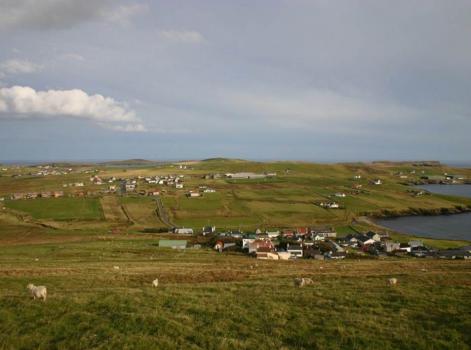
Onsite wastewater treatment systems (OWTS), the majority of which are septic tanks, are a contributing factor to phosphorus and faecal microbial loads. OWTS contribute to waterbodies failing to meet Water Framework Directive (WFD) objectives and as such, measures to improve the quality of OWTS discharges are required. Literature has been reviewed for a range of measures designed to reduce phosphorus and pathogen concentrations in effluent from OWTS. A feasibility assessment focussed on their application, effectiveness, efficiency, cost and ease of adaptation. A wide range of measures have been identified that could potentially improve water quality.
Hydro Nation Scholarship Programme 2018
Applications are now welcome for project proposals based on our topic themes for 2018. Full details of the programme can be found on the Hydro Nation Scholars website.
The Hydro Nation Scholarship Programme is an open competition for PhD scholars to undertake approved projects hosted within Scottish Universities and Research Institutions.
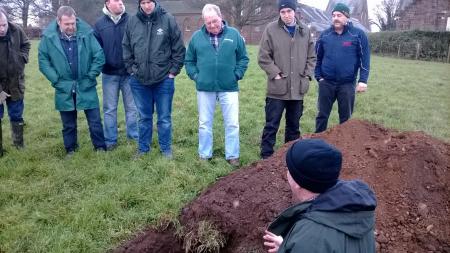
The fifth ‘Valuing Your Soils’ awareness raising workshop for farmers is taking place at Girvan Mains farm (KA26 9JD) on 17th July. There will be machinery demos, a tour of an anaerobic digestion plant and open soil pits. Further information will be available shortly.
Developing simple indicators to assess the role of soils in determining risks to water quality
This project set out to explore the possibility of producing a set of four risk maps that could be used to determine the risk of diffuse pollution occurring within Scottish agricultural catchments. The key soil-based factors likely to affect water quality were deemed to be:
• Sediment and pollutants being transported to water bodies by erosion events
• Compaction, which reduces infiltration and may exacerbate run-off
• Surface run-off
• Leaching of potential pollutants
Two test catchments were chosen (the Coyle and the East Pow, both sub-catchments of SEPA’s designated priority catchments) as a related project on soil nutrient management was already using these catchments as trial areas.
The conference programme has been finalised. Bookings are now being taken for this event.
Please note that the deadline for new bookings is 30th June 2017.
Since being commissioned in December 2009, the DTC research programme has developed, tested and promoted cost-effective management options to reduce water pollution from agriculture at the farm to catchment to national scales. The two days will focus on DTC findings and recommendations, and the experience of other observatories and platforms working on water quality and its management.
This event is open to all, from farmers to environment and water professionals, scientists, regulators and policy makers. Discussions will include:
- How do we best characterise the rural water quality problem?
- Which interventions are most attractive to farmers and what can they achieve?
- What knowledge gaps remain?
The conference has been part-funded by Defra from the DTC programme and will have a limited number of keynote talks with emphasis on themed sessions designed to showcase scientific results.
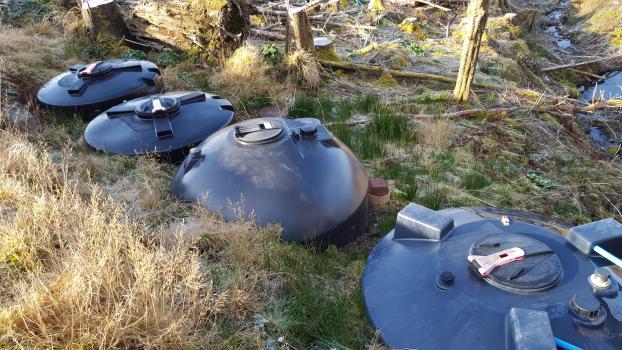
This project aimed to work with four rural communities to explore engagement around private water supplies (PWS). Approximately 3.4% of the Scottish population uses around 20,000 PWS, predominantly in rural areas (DWQR, 2016). These drinking
water sources may not provide resilience in dry periods. In addition, the quality of PWS is highly variable (DWQR, 2016), posing associated health risks. Failures are often due to poor or unmaintained treatment systems and sources with variable quality
(especially during wet weather events).
To be able to improve PWS, it is necessary to understand how to engage with rural communities around the issue, and this project sought to consider this. The Scottish Government is working towards improving the quality of these supplies and this project is an integral part of that work.
Methods for controlling or eradicating aquatic invasive species

This report covers control measures for 13 high or moderate impact, and one ‘alarm’ species on the UKTAG list that were not covered by the Aldridge report for Natural England. It draws information from published and unpublished literature, listed best practices, technical reports, unpublished reports, project websites and expert knowledge. For each species, a report was written to present essential background information about the ecology and biology of the species. This is followed by a list of invasion pathways and known techniques to limit further spread. The third section lists successful control measures that encompass biological, chemical, physical and environmental approaches. A final section on further research acts to identify potential knowledge gaps.
Water Resource Balancing: Is a closed loop system possible that enables sustainable rural supplies?
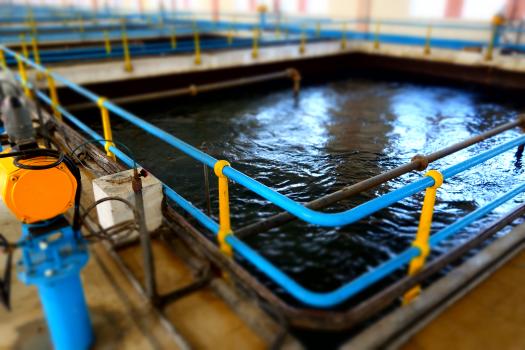
The aim of this work was to carry out a mass balance of energy, nutrients and other potential resources at a range of scales (single house, small community and large urban scale). The focus of the study was on waste water treatment and resource recovery. The study considered whether a closed loop cycle for water and energy was possible in these situations. In doing so, the project team identified technologies, systems and approaches that may need to be adopted to make this possible. Furthermore the project team considered economic factors for selected parameters and approaches as well as taking into account factors such as environmental impact, scalability and life cycle analysis (LCA).
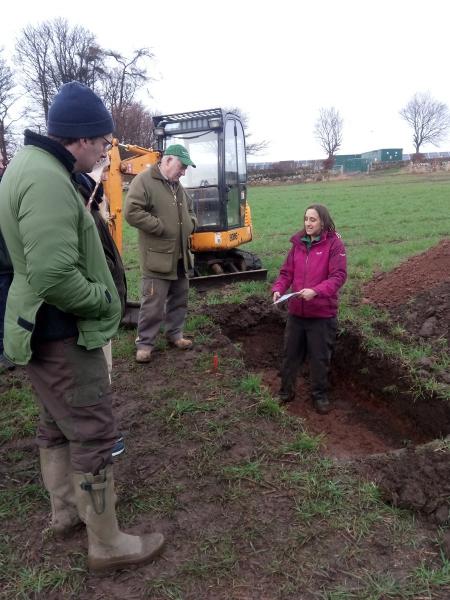
The fourth ‘Valuing Your Soils’ awareness raising workshop for farmers is taking place at Leitfie farms (near Blairgowrie) on 16th March. There will be machinery demos and open soil pits. For more details on the event please see the SRUC project page.
Radon in groundwater drinking water supplies in Scotland
Are radon concentrations in drinking water higher in the high-risk area, where the underlying geology is likely to deliver high radon concentrations in groundwater and indoor-air, than elsewhere in Scotland? What should the minimum allowable radon concentration (parametric value) and action level for remedial action be in drinking water to protect public health from exposure to radon?
This report presents the most recent and comprehensive evidence on radon concentrations in public and private groundwater supplies in Scotland; this evidence is essential for specifying regulations for radon in drinking water in Scotland to protect public health against radon.




